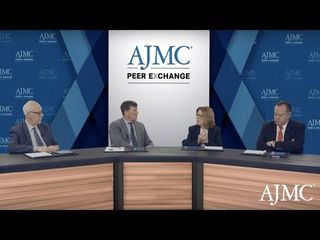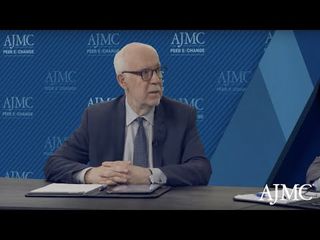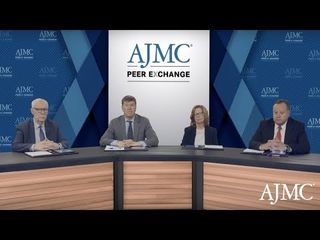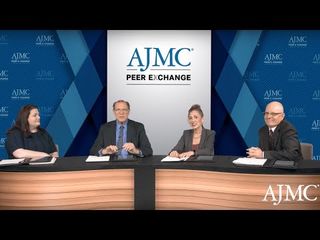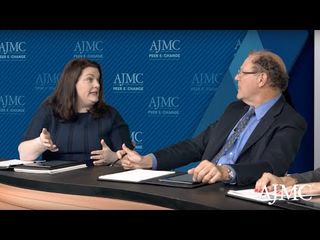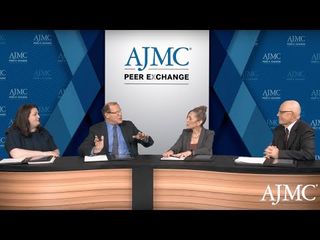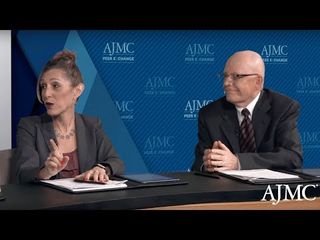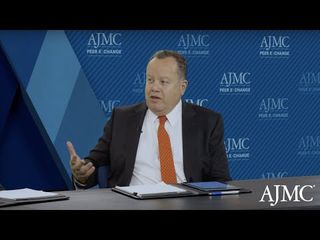
Clinical
Latest News

Latest Videos

More News

At the Community Oncology Alliance's Payer Exchange Summit VII: Oncology Payment Reform, practices shared their challenges and successes in the second year participating in the Oncology Care Model.

A new study questions the use of stents in certain patients; the House is expected to pass CHIP funding, but how to pay for it continues to be debated; and nearly all older, poorer people will have access to cheaper ACA plans in 2018.

While current, prior, and change in the Kansas City Cardiomyopathy Questionnaire score were all significnatly associated with lower risk of mortality and heart failure hospitalization in isolation, when the current score was included with either prior or change score, only the current score was significantly associated with lower risk for all-cause mortality.

Black men have the highest prevalence of intracranial atherosclerotic disease (ICAD) and the highest frequency of multiple plaques, a new study has found.

Novartis has filed for an expanded indication for its chimeric antigen receptor T-cell treatment, tisagenlecleucel (Kymriah), for use in patients with diffuse large B-cell lymphoma (DLBCL), the most common form of non-Hodgkin’s lymphoma.

Strong chemotherapy may be part of the treatment plan for patients diagnosed with cancer, but it also comes with risks. A new campaign will empower patients with cancer to better understand and navigate risks such as febrile neutropenia that are associated with strong chemotherapy.

Results of the 70-gene signature assay strongly influence physician's treatment recomendations for patients with early breast cancer who were classified as intermediate risk by the 21-gene assay.

A back to back session and panel at the falls’ ACO & Emerging Healthcare Delivery Coalition focused on the importance of utilizing integrated healthcare to treat individuals with addiction and ensuring physicians are educated on understanding addiction.

Hydromorphone is commonly used in hospital emergency rooms to treat patients with migraines; however, the drug is less effective than the drug prochlorperazine used with diphenhydramine, according to research.

Physicians should be cautious when treating patients with lung cancer after progression on nivolumab because nivolumab-refractory lung cancer could have a significant response to salvage chemotherapy, according to a new study.

This fall's ACO & Emerging Healthcare Delivery Coalition



A new study found that patients with borderline pulmonary hypertension (mPAP values of 19 to 24 mm Hg) should be considered an at-risk subgroup with increased mortality compared with patients with lower mean pulmonary arterial pressures.

After a study reported that physicians who authored dermatology clinical guidelines didn't always fully disclose financial conflicts of interest, the American Academy of Dermatology urged the public to view the findings with caution.

New high-risk groups of patients with chronic obstructive pulmonary disease according to GOLD 2017 were found to have more characteristics related to acute exacerbation and mortality risks.

Tuple Health, a healthcare technology startup, interviewed some of the stakeholders participating in value-based care delivery and OCM, to gain their perspective of the state of cancer care and healthcare reform. The results were presented at the Community Oncology Alliance Payer Exchange Summit on Oncology Payment Reform.

In addition to the cost, the excessive overuse of laboratory testing causes patient discomfort and can lead to hospital-acquired anemia, which results in additional testing, prolonged hospitalizations, unnecessary transfusions, and increased mortality for patients with cardiopulmonary diseases.

Patients with rheumatoid arthritis (RA) and their rheumatology healthcare providers commonly face discordance as many patients report a higher disease activity rate than their providers.

Every week, The American Journal of Managed Care® recaps the top managed care news of the week, and you can now listen to it on our podcast, Managed Care Cast.

This week, the top managed care news included the bipartisan deal to stabilize the Affordable Care Act's insurance markets; coverage from the Academy of Managed Care Pharmacy 2017 Nexus; and a plan to reduce clinician burnout at the computer.

History of neutropenia with methotrexate, concurrent treatment with synthetic disease-modifying antirheumatic drugs (sDMARDs), and tocilizumab were risk factors for developing neutropenia while on biologic DMARDs (bDMARDs), according to a study published in The Journal of Rheumatology.

Axicabtagene ciloleucel (Yescarta) has been approved to treat adult patients with diffuse large B-cell lymphoma who have not responded to or who have relapsed after at least 2 other kinds of treatment.

The COMPASS trial results could reshape the standard of care for patients with coronary artery disease (CAD) and peripheral artery disease (PAD), according to Deepak Bhatt, MD, MPH, of Brigham and Women's Hospital and Harvard Medical School.

Although there is no scientific evidence that a specific diet reduces risk of infection in patients experiencing neutropenia, it is a common strategy in cancer care. Research presented at the 42nd Annual Congress of the Oncology Nursing Society determined that the popular neutropenic diet can be eliminated from practice.



